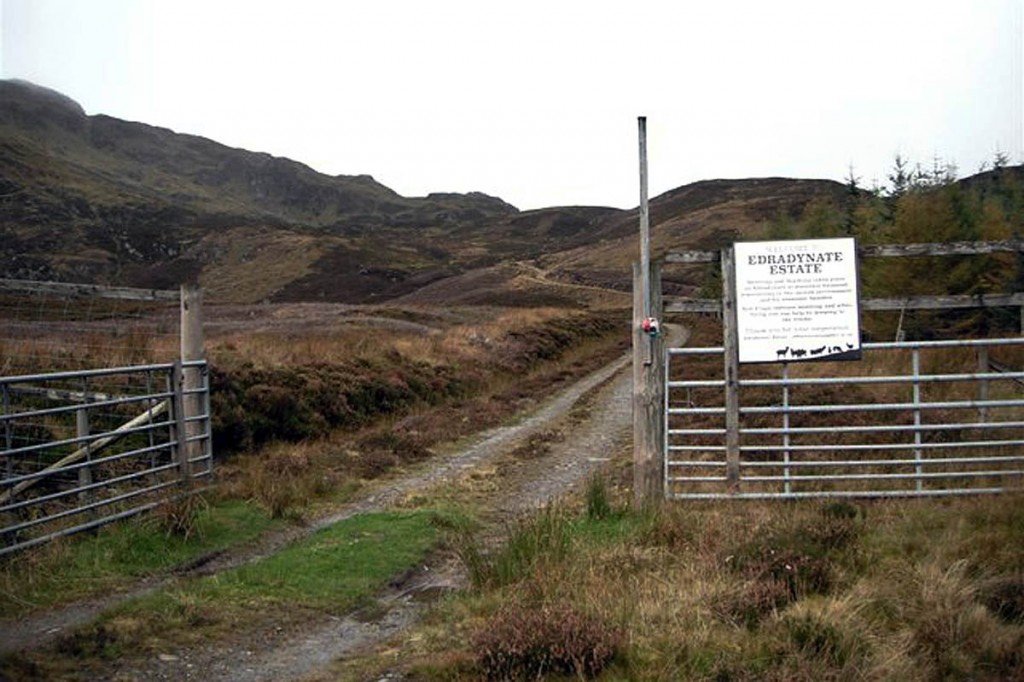Scottish Natural Heritage has limited the permission of a Highland shooting estate to kill wild birds, in an effort to protect birds of prey.
The government advisory body has restricted the use of a ‘general licence’ on land at the Edradynate Estate near Aberfeldy in Perthshire.
SNH said the measure had been introduced on the basis of evidence provided by Police Scotland of wildlife crime against birds.
An individual has also had a general licence restriction imposed.
A spokesperson for the agency said: “A property in Perthshire and an individual will have their licences restricted. They may still apply for individual licences, but these will be closely monitored.
“General licences allow landowners or land managers to carry out actions which would otherwise be illegal. This includes controlling common species of wild birds, by shooting or trapping, to protect crops or livestock.
“General licences are a light-touch form of regulation and they rely on trust. In situations where that trust has been lost, general licences are not appropriate.”
The restrictions to the estate and individual apply to the permission to kill or capture birds from the crow family, ruddy ducks, Canada geese and great black-backed gulls for the purposes of wild-bird conservation, plus pigeons, wood pigeons and collared doves for health and disease prevention, with the addition of greylag geese to protect crops.
Two general licence restrictions have previously been issued in 2015 in the Scottish Borders and north of the Campsie Fells in Stirlingshire. Each lasts for three years.
SNH said the restriction does not infer responsibility for the commission of crimes on any individuals.
Mike Cantlay, SNH chair, said: “We’re working hard to protect our birds of prey. Raptor persecution doesn’t just damage Scotland’s nature, it also affects tourism which in turn impacts on the economy.
“Yet, because of the remote locations where most wildlife crime takes place, it’s often difficult to prove. We’re committed to stamping out wildlife crime in Scotland, and will continue to work strongly in partnership with Police Scotland and other members of the Partnership for Action Against Wildlife Crime.”
SNH said nature-based tourism is worth £1.4bn a year to Scotland’s economy.
It added the measures will help protect wild birds in the area, while still allowing necessary land management activities to take place, but under tighter supervision. The three-year restriction will increase if more evidence of offences comes to light.
General licences cover situations which are regarded as relatively commonplace and where there is unlikely to be any great conservation impact, SNH said. The licences avoid the need for people to apply for individual permits for specific circumstances, but are subject to strict conditions, and abuse of them or failure to comply with the conditions could constitute an offence.
In 2013, Scotland’s then minister for the environment and climate change, Paul Wheelhouse, asked SNH to consider how general licences could be restricted, as part of a number of measures aimed at reducing raptor persecution.
The general licence restrictions are backdated, so that action could be taken when there was evidence of wrongdoing since 1 January 2014.

John Newrick
27 September 2017This should apply to all moors in the British Isles particularly In our National Parks, why on earth do a few Grouse chicks etc. call for the persecution of beautiful bird of prey - to name a few Hen Harriers, Short Eared Owls, Merlin, Kestrel, Goshawk and Buzzards. It is beyond comprehension why this should be allowed in our very small country. I understand that the people who own and manage Grouse Moors expect a return for their efforts BUT the persecutiuon of these rare birds is beyond the pale and should be stopped forthwith. I personally have seen all of these species on our moors and they are a delight to see !
GeorgeH
05 October 2017Meanwhile the wind industry slaughter continues with impunity!
White-tailed Sea Eagles are being killed by windfarms in Norway, Sweden, Germany, Japan, Scotland and the Netherlands; Bald Eagles in Canada; Golden eagles in the US, Sweden, Scotland and Spain; Wedge-tailed Eagles and White-bellied Sea Eagles in Australia; eagles from 5 different species in Spain.